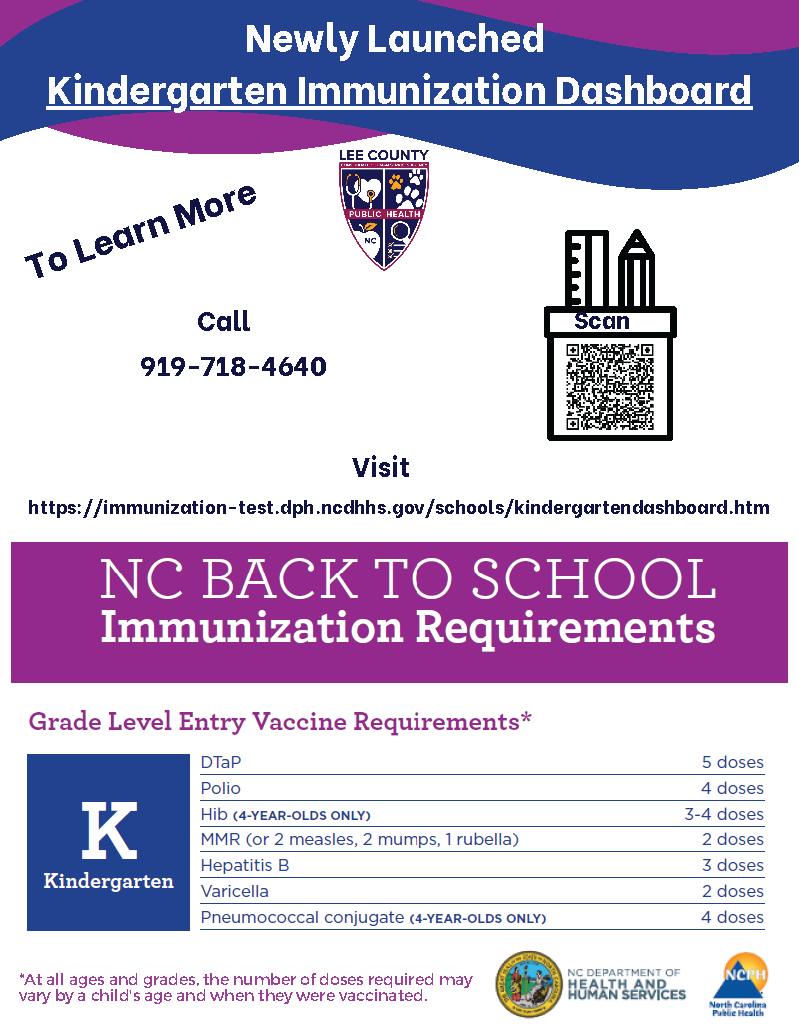Student Health & Wellness | School Nurses
Healthy children are successful learners. The school nurse supports the physical, mental, emotional, and social health of students and their success in the learning process. The school nurse serves as a liaison between school personnel, family, community, and health care providers. If you have a concern about your student's health needs, please contact the school nurse.
Find more information about the School Health Program here: English | Spanish
When Children Should Stay Home from School
Students should stay home from school if experiencing any of these symptoms or conditions. When in doubt, check with your child's doctor or school nurse.
Fever (temperature over 100 degrees F) and then fever-free for 24 hours without medication
Vomiting
Diarrhea
Congested and/or coughing frequently
Obviously does not feel good
If a child has signs or symptoms of one of the following contagious conditions they should also stay home:
Scabies
Head Lice
Strep throat or Scarlet Fever
Conjunctivitis ("Pink Eye")
Impetigo
Staphylococcus infection
Measles/Mumps/Rubella
Medication Administration at School
A Request for Medication to be Given During School Hours form (purple paper) must be completed for all medications that are administered or taken at school (Lee County Board of Education Policy #4525 & Regulation 4525).
If your child requires an inhaler for asthma or an EpiPen for severe allergies your doctor may want your child to carry the medication with him/her and self-administer when necessary. The Request for Medication form has a *section* for you and your doctor to check. Your child will need to demonstrate to the School Nurse his/her ability to accurately self-administer the medication and sign a contract (back of form).
You may also receive an EMERGENCY ACTION PLAN (for ASTHMA or SEVERE ALLERGIES) in addition to the (purple) medication form. This will need to be completed and returned with the (purple) medication form. The allergy action plan will need the signature of your child’s physician.
If your child has an allergy to food(s) or needs a diet accommodation you may receive a Medical Statement for Students with Special Nutritional Needs for School Meals form that must be completed by you and the physician and returned to school.
The medication must be in a bottle properly labeled by the pharmacist (for prescription medicine) or in a new labeled bottle (for over-the-counter medicine such as Tylenol). The pharmacist will make a duplicate bottle (with the proper label) for you to bring to school. This procedure for giving medication(s) at school is the School Board adopted policy on medication administration, even for self-administered medication like an asthma inhaler. You (the parent or guardian) need to bring the medication to school, unless you have arranged something different with the school principal or the school nurse.
Request Form for Medication to be Given During School Hours
Request for Medication to be Given During School Hours (Espanol)
Student Health Insurance
Does your child have health insurance? Your child may qualify for healthcare coverage through North Carolina's Medicaid or Health Choice (CHIP) grant program - free or low-cost health insurance for children and teens*. Even children in a family of four with working parents earning $52,968 a year or slightly more may qualify.
*NC's children in foster care on their 18th birthday may have Medicaid coverage until age 26.
Learn more about eligibility on the NC Department of Health & Human Services (DHHS) Website.
Concussion Awareness & Information
School Nursing Staff
Student Accident Insurance
Lee County Schools provides insurance for students at no cost to parents. The insurance provides a limited benefit accident insurance plan for all students in grades Pre-K through 12. Student athletic insurance is also provided for student athletes in grades 7 through 12.
Please see the following for more information on optional Supplemental Student Accident Insurance:
Vaccine & Preventable Diseases
All students entering schools are required to have a certain number of vaccine doses (or immunizations) to help prevent a variety of diseases, including diphtheria, pertussis, tetanus, polio, Haemophilus, Hepatitis B, measles, mumps, and rubella, varicella and meningococcal meningitis.
Some of the newer vaccines are not required for school entry but help prevent diseases that affect specific populations (such as college students or adolescent males and females) but should be considered for your child's health.
Learn more about Vaccines and Preventable Illnesses here: English | Spanish
Required Immunization and Health Assessment Information: English | Spanish
NCDHHS Kindergarten Immunization Dashboard
Students entering Kindergarten have entry requirements that include the appropriate type of vaccine administrations and the correct number of doses for the student's age. NC Department of Health and Human Services has set up a new online dashboard to help parents determine the vaccine requirements for their child's entry to Kindergarten.
You can visit their dashboard by clicking here and review the poster below provided by NCDHHS and the Lee County Health Department.

